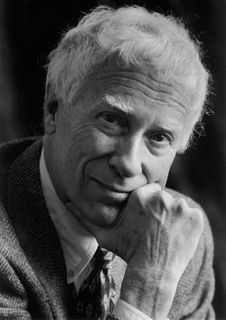A Quote by Max Lucado
It's one thing to be discouraged. It's another thing to have despair. Despair is when you think there's just no end to this [suffering]. There's no solution for this. Despair is when you think that your suffering has no purpose, and your suffering has no end.
Related Quotes
Suffering is an oxymoron. There is unfathomable peace and satisfaction in suffering for Christ. It is as though you have searched endlessly for your purpose in life and now found it in the most unexpected place: In the death of your flesh. It is certainly a moment worth of laughter and dance. And in the end it is not suffering at all. The apostle Paul recommended that we find joy in it. Was he mad?
True freedom and the end of suffering is living in such a way as if you had completely chosen whatever you feel or experience at this moment. This inner alignment with Now is the end of suffering. Is suffering really necessary? Yes and no. If you had not suffered as you have, there would be no depth to you as a human being, no humility, no compassion. You would not be reading this now. Suffering cracks open the shell of ego, and then comes a point when it has served its purpose. Suffering is necessary until you realize it is unnecessary.
I think despair and cynicism are two different things. On the flip side of hope is despair. Belief and doubt are the same thing, in that to believe something you have to actively doubt the opposite. And from my perspective, that's the deep end. You're dealing with the unknown; you're dealing with mystery.
Use all your suffering for meditation, and soon you will come to know that the suffering disappears because the energy starts moving inwards. It is not moving to the periphery, to the suffering, you are not feeding your suffering. It looks illogical, but this is the whole conclusion of all the mystics of the world: that you feed your suffering and you enjoy it in a subtle way, you don't want to be well—there must be some investment in it.
The world is full of suffering. Birth is suffering, decre- pitude is suffering, sickness and death are sufferings. To face a man of hatred is suffering, to be separated from a beloved one is suffering, to be vainly struggling to satisfy one's needs is suffering. In fact, life that is not free from desire and passion is always involved with suffering.
Compared with the person who is conscious of his despair, the despairing individual who is ignorant of his despair is simply a negativity further away from the truth and deliverance. . . . Yet ignorance is so far from breaking the despair or changing despair to nondespairing that it can in fact be the most dangerous form of despair. . . . An individual is furthest from being conscious of himself as spirit when he is ignorant of being in despair. But precisely this-not to be conscious of oneself as spirit-is despair, which is spiritlessness. . . .
Within the framework of the Buddhist Path, reflecting on suffering has tremendous importance because -realizing the nature of suffering, you will develop greater resolve to put an end to the causes of suffering and the unwholesome deeds which lead to suffering. And it will increase your enthusiasm for engaging in the wholesome actions and deeds which lead to happiness and joy.
An individual in despair despairs over something. . . . In despairing over something, he really despair[s] over himself, and now he wants to get rid of himself. Consequently, to despair over something is still not despair proper. . . . To despair over oneself, in despair to will to be rid of oneself-this is the formula for all despair.
































